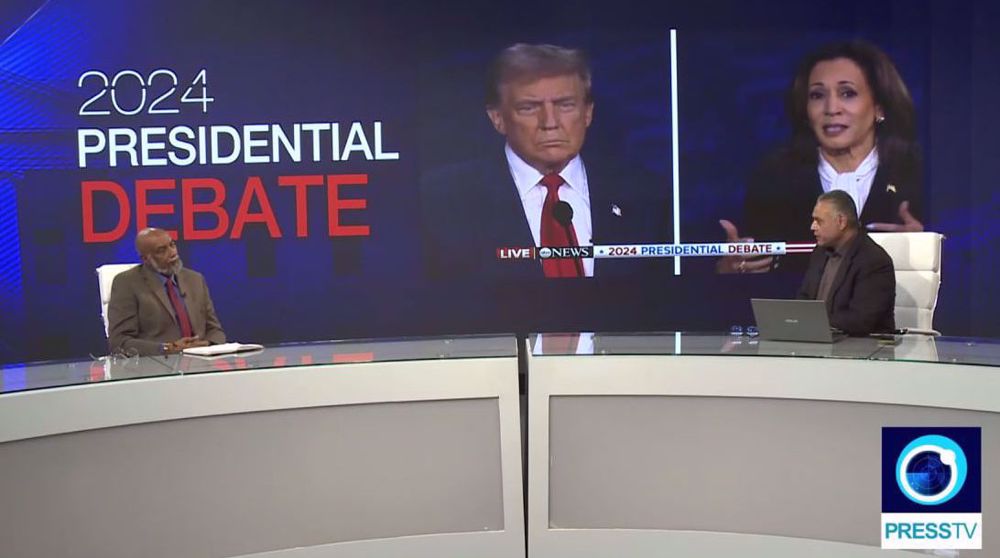EU exit not to significantly affect British economy: Analyst
Press TV has conducted an interview with Robert Oulds, an economic expert from London, to discuss an upcoming British referendum on whether to stay in the European Union.
The following is a rough transcription of the interview.
Press TV: It seems that tide is turning in favor of Leave campaign at least according to polls. How worried should world markets be?
Oulds: Not at all, really. People in Britain are often told that ‘we’re too small to be an independent country, and therefore have to be in the European Union,” but [at] the same time, they’re saying ‘we’re sort of being important. If we left the European Union, it would cause some kind of catastrophe.’ Those two arguments do not make sense. The argument that Britain has to be subject to the European Commission and the European Court of Justice are ridiculous.
Trade can continue between the UK and the rest of the European Union once Britain is out; that’s the key thing as long as people have access to sell goods and services and to bid for projects across Europe. Then, there should not be any kind of economic problems at all. Hundreds of market access is there; then, the economics will be OK. They need to remember the European Union is about politics. It’s a political institution. It’s a system of government that Britain doesn’t want to be a part of.
So, there shouldn’t be an effect on trade. It is Donald Tusk, the president of the European Council, getting somewhat carried away earlier in the week, he warned that Britain leaving the EU would be the end of Western civilization. That’s rather hysterical. It’s exaggerating and 80 percent of people in the UK do not believe these scare stories that the economy would suffer if Britain left the European Union, because all we’re saying is we want to govern ourselves not be told what to do by the EU.
Press TV: Certainly it would make sense that for a short while at least, there would be some uncertainty, wouldn’t there, when it comes to the economics?
Oulds: There wouldn’t be any change in the short term if Britain votes on June 23, one week from today, to leave the European Union. There would not be any change for at least two years, probably longer, because it wouldn’t mean Britain actually leaves. All it is, is a recommendation from the British people and the mechanics are as the government eventually would tell the EU that we want to leave. That would probably go into the notification sometime after the vote probably a few months and after that it takes two years for a country to leave the European Union.
So, in the short term absolutely nothing will change whatever the result of the referendum. So, it shouldn’t actually affect things. And within that two-year framework, it should be possible on the European Union law to negotiate a trade agreement, which would perhaps be one way Britain would remain a member of the single market or one way we have preferential access to the single market. But we need to remember that most countries in the world are not in the European Union, but they all have access to the EU’s market.
China isn’t in the European Union, yet they sell millions of pounds worth of goods, more than Britain to the EU, than many other countries, including Britain, that is in the EU. The United States isn’t in the European Union, but they still managed to sell to the European Union. Of course, Iran isn’t in the European Union and there [are] trade talks and investment discussions between European businesses and Iran. We don’t need to be in the European Union to have good economic links and trade links. And so really in the short term nothing would actually change, things would carry on.
‘Mockery of intl. law’: Iran says Israel subverting human values through West’s dual approach
‘Hezbollah limitless’: Fmr. IRGC chief says resistance front on verge of ‘great victory’
Explainer: How Hezbollah struck Ramat David airbase and Rafael arms factory in Haifa?
Oscar-winning Spanish actor slams Israeli ‘crimes against humanity’ in Gaza
Biden says alliance between US, Australia, India and Japan is ‘here to stay’
Sept. 21: ‘Axis of Resistance’ operations against Israeli occupation
US, Israel will never achieve ‘vicious goals’ by killing resistance figures: Iran
VIDEO | Seoul activists, foreigners, Palestinians, decry US support for Israel














 This makes it easy to access the Press TV website
This makes it easy to access the Press TV website